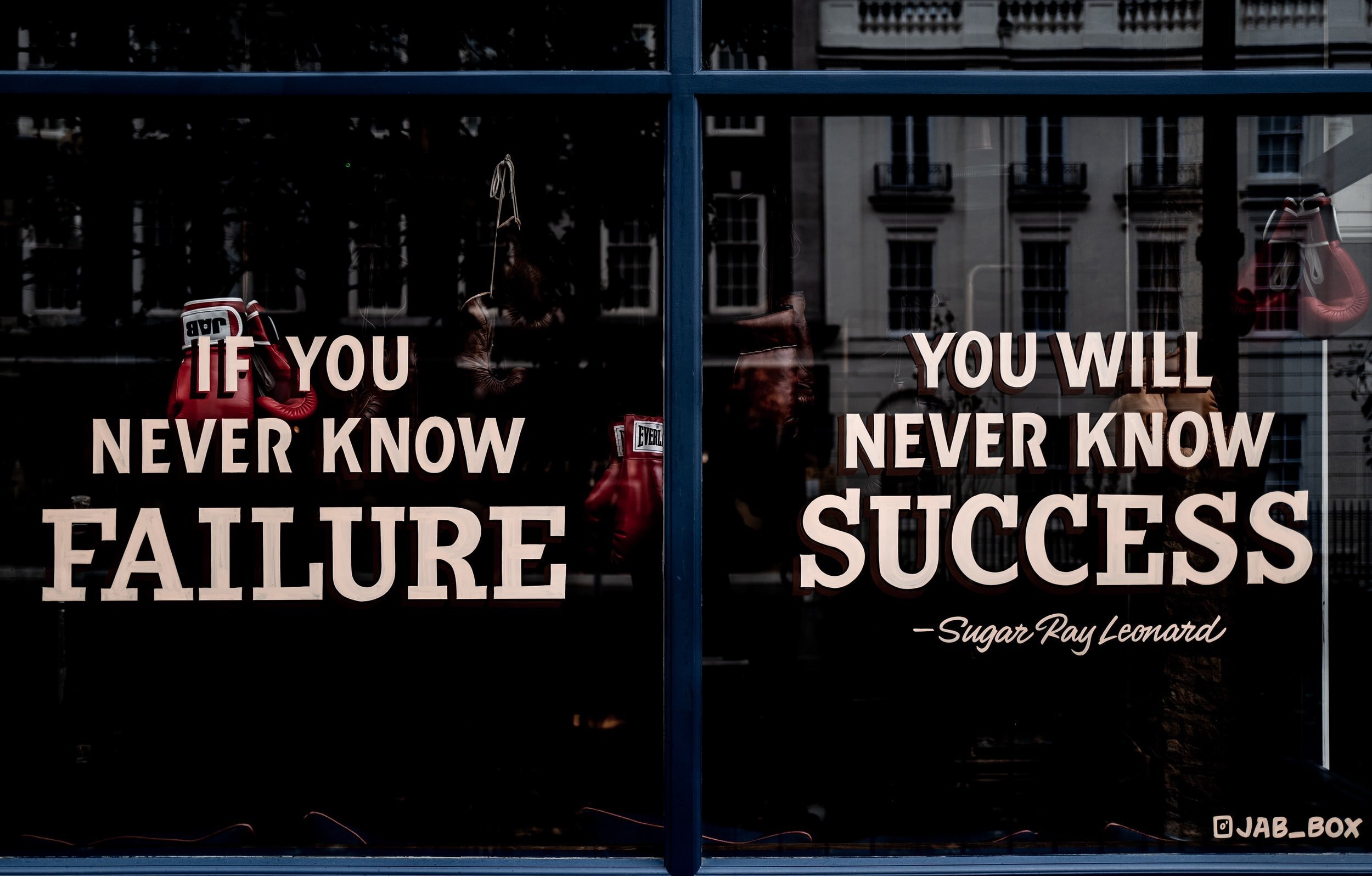Let’s Chat: Imposter Syndrome
So far in life, I think I’ve done pretty weak in the grand scheme of things. I managed to go straight into the industry that I love after graduation, and I’ve slowly moved my way up the career ladder until I’ve reached my current marketing position. I’ve worked my way from Wolverhampton to Wales, then all the way down south to my current home in London.
But the early success I’ve achieved in life, there’s a consistent feeling that I’m going to get called out as a fake.
“Any day now, someone is going to call me out for the fraud I am.”
I absolutely adore the internet and social media, but it can be an incredibly dark place sometimes - full of toxicity and hate. I’m 22, my 3/4 years of experience do not make me any more prepared to deal with it. The longer I write my articles and plan my content, the more likely it will be that I’m called out. The more I feel like a fraud.
This is called imposter syndrome, and it’s an insidious little thing.
However, rather than let this fear overcome me and halt my progress, I’ve worked with my imposter self to gain even greater exposure. If I’m honest, I think I’ve achieved some pretty great things by recognising my imposter syndrome and using it as a strength rather than a weakness.
What is imposter syndrome?
I remember hearing of Imposter Syndrome in Ben Brandall’s article in July 2016. He talks about psychologists who coined the phrase (Pauline R. Clance and Suzanne A. Imes) conducting a study in 1978, showing that high achieving women in particular “share the same tendency to ignore evidence that they’re intelligent and imagine everyone has made a mistake in assuming they are”.
Having said that, later studies have shown (and Clance has admitted) that not only are both genders equally affected, but anyone and everyone has it to some degree.
Having said that, the greater your success, the more likely you are to distance yourself from those achievements in some way. This only makes sense, as massive success equals a bigger distance from the “average.” Indeed, high profile cases of impostor syndrome have been noted among celebrities like Emma Watson, Michelle Pfeiffer, Tom Hanks, and Neil Gaiman.
To summarize what it is:
You assume that you don’t deserve the success you have
Everyone has it to a greater or lesser degree
The greater your achievements, the greater the potential dissonance
To break it down further, impostor syndrome typically has two direct effects:
Feeling like a fraud, undeserving of your current position
Disassociating your achievements from your abilities
Depending on how severe the case is, this can lead to anything from insecurity and hesitancy to destroying career paths by passing up on applying for promotions, never starting projects for fear of failure, and endlessly editing to check for mistakes.
It’s not easily dealt with, and it’s unlikely to go away permanently. Knowing this, and knowing that everyone (including you) has these thoughts, how on Earth do you go about dealing with it?
Well, it helps to know when impostor syndrome will hit you – this at least gives you a little warning for when you should be vigilant against it.
When does imposter syndrome hit?
Short (and frustrating) answer, impostor syndrome can hit at any time, anywhere. It does, however, vary on exactly how much you feel like a fraud.
For example, a bad case of impostor syndrome may constantly feel like a fraud, just waiting for the day when everyone will “find out” their flaws. A mild case could only experience it when meeting with a sudden increase in exposure – they’re not used to it, and so it feels undeserved.
However, in my experience impostor syndrome burns brightest when:
Your abilities are under scrutiny by a new party
Your workflow stutters and fails
The first of these is understandable. When someone new is assessing you based on credentials or previous successes there’s bound to be uncertainty. In my case, these instances of impostor syndrome are short-lived but strong – they’re easy to predict, so you can rationalize and deal with these outbursts easily.
For example:
When I’m sending pitches for my guest posts, and (especially) when checking my emails for replies to them I’ll have a bout of uncertainty. Even this very guest post made my stomach turn when checking for a reply; despite having posted on Mention before, there was the nagging thought that I’d be rejected for not knocking it out of the park.
The second form is more insidious:
A failing workflow causes lingering doubt, slowly bubbling away at the back of your mind in a vicious cycle which, if left unchecked, quickly drags down your performance.
It doesn’t matter what interrupts your flow. Whether you had an emergency phone call or replied to your latest Facebook message, once your flow’s gone it’s difficult to regain that same stream of consciousness.
For me, however, the anxiety doesn’t stop there.
I usually work myself up over getting distracted, later berating myself for not getting as much done as I know I could. Once or twice this has even reached the point where I’ve found myself saying “I wouldn’t pay myself to do what I do”.
That’s the point where all of this needs to stop.
It’s one thing to be my own worst critic; if anything, that helps to motivate me more and go at the day harder because of what I feel like I need to make up for.
It’s entirely another ball park to convince yourself that you don’t deserve to be where you are. Repeat it often enough and you’ll end up believing it, which will show through your work. I wouldn’t go so far as to label it a “self-fulfilling prophecy”, but it certainly won’t do you any favors.
It’s time to take a stand.
Fighting imposter syndrome?
Track your goals
Goals can both cause and alleviate impostor syndrome – it all depends on how you use them.
Long-term goals by themselves will make every task feel insurmountable. This, in turn, causes you to distance yourself from any progress you make towards them (since you still have so far to go).
Short-term goals alone can leave you feeling directionless – you’ll be able to see your progress in chunks, but lack a true sense of purpose to gauge them against. Therefore, the best way to track your goals is to combine the two.
I’ve set myself a long-term goal of becoming a reputable writer/content marketer, with a network of connections that will allow me to progress no matter where I end up.
Knowing that, I can record whenever I complete a short-term goal which furthers my progress. For example, I have a Google Sheet set up to track every guest post I write. Then, if I feel like a fraud, I can go back and prove to myself that I’m not an idiot, and I’m good enough to be accepted on sites like Mention, Chargebee, and UsabilityGeek.
Focus on the process, not the result
One of the best ways I’ve found to combat impostor syndrome is to take human error out of the equation. The easiest way to do this is to document your processes.
For example, I have a set workflow for researching my work (spending no more than an hour of doing nothing but research), a keyword research method, and a pre-publish checklist set in stone. That way I don’t have to worry about what my next step is, and I can’t doubt myself in terms of forgetting a step.
Sooner or later I will doubt my abilities as a writer. When that time comes, however, I won’t be doubting the process I have to follow – I’ll check my process, carry out the next step, then move on.
Rationalise your success
Another great way to tackle the feeling of inadequacy is to rationalize the success that you’ve had. By this, I mean that you should bear in mind what could have already stopped you from being successful.
Again, I tend to have the most acute instances of impostor syndrome when pitching a guest post or submitting it for review by the site. I know that everything has to be up to their standard of writing, and prove useful (and fitting) enough to their audience that they want to publish it.
Sure, I’ve had a couple of pitches accepted only to be rebuffed once the final product is sent off, but for the most part my pitches have been successful. In other words, my writing and insight was good enough to meet their standards and they were happy to publish it.
Much like with focusing on your process, you take yourself out of the equation by proving that those barriers didn’t stop you. Your post was good enough, because otherwise it wouldn’t have been published.
Keep a folder of confidence boosters
Sometimes the best way to shock yourself out of feeling like a fraud is to have somebody else tell you that you’re doing a good job. Social proof at its finest.
I’ve tried asking one of my team members (Ben Brandall) about my work before, but he’s known me for so long that I never quite believe him (sorry Ben!). It’s like asking a family member to look at your work – they’re likely not as blunt as you’d hope.
So, instead of bugging my team so often, I’ve taken to saving screenshots of social proof that I’m doing a good job. If a post I wrote starts trending on GrowthHackers, I’ll take a screenshot.
Same with positive comments left on our blog and even posts that I’m personally proud of – everything than can help reassure me that I’m not, in fact, bluffing my way through the day goes into a folder in Google Drive.
Then, if I’m feeling panicky or unsure of my abilities, all I have to do is open up that folder and get a fresh boost in confidence.




